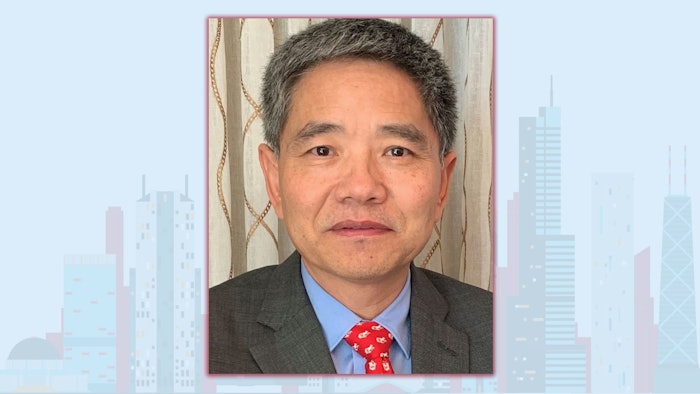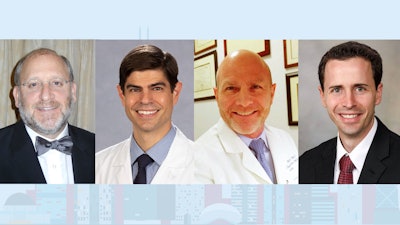Debate to highlight ethics of restorative therapies for erectile dysfunction
Should doctors be charging significant fees for investigational or experimental approaches?

Erectile dysfunction (ED) is a major clinical problem and a booming business. PDE-5 inhibitors, vacuum erectile devices, intraurethral gel, penile injection and penile implants can provide men with assisted erection, but there are no approved restorative therapies or cure for ED. The lack of curative treatment has not deterred a growing number of ED clinics and practitioners charging thousands of dollars for shockwave, platelet-rich plasma (PRP) injections, stem cell therapy and other purported cures with minimal or inconsistent evidence and no regulatory approval.
“Even when we are talking about shockwave therapy, which at least appears to have no physiologic side effects, there can be significant harm providing unproven treatment,” said Run Wang, MD, FACS, professor of urology at The University of Texas McGovern Medical School in Houston, Texas, and the president-elect for the International Society for Sexual Medicine (ISSM). “There are many providers charging patients significant amounts of money and giving patients the perception that these treatments will cure them of ED. We tend to forget about the financial harm these investigational or experimental treatments cause to patients. On the other hand, it is difficult to obtain clinical data related to restorative therapies if there are no research grants or financial support.”  From left: Gerald Benjamin Brock, MD, FRCSC; Thomas A. Masterson, III, MD; John Patrick Mulhall, MD, MSc, FECSM, FACS, FRCSI; and Landon Trost, MD
From left: Gerald Benjamin Brock, MD, FRCSC; Thomas A. Masterson, III, MD; John Patrick Mulhall, MD, MSc, FECSM, FACS, FRCSI; and Landon Trost, MD
Dr. Wang will moderate a Crossfire Debate, “Is it Ethical to Charge for Platelet-Rich Plasma (PRP) Injections, Shockwave and Stem Cell Therapy for Erectile Dysfunction?” from 9:35-10:05 a.m. on Sunday, April 30. Gerald Benjamin Brock, MD, FRCSC, the president of ISSM and professor emeritus of urology at the Schulich School of Medicine & Dentistry at Western University in London, Ontario Canada, and Thomas A. Masterson, III, MD, assistant professor of clinical urology at the Desai Sethi Urology Institute at the University of Miami Miller School of Medicine, will take the pro side. On the con side are John Patrick Mulhall, MD, MSc, FECSM, FACS, FRCSI, the editor-in-chief of the Journal of Sexual Medicine and the director of male sexual and reproductive medicine at Memorial Sloan Kettering Cancer Institute in New York City, and Landon Trost, MD, the director of the Male Fertility and Peyronie’s Clinic in Orem, Utah, and the former head of male infertility and andrology at Mayo Clinic.
“There is no debate about charging for ED consults that include information about approved and unapproved approaches or for providing approved treatments,” Dr. Wang said. “The real focus is the ethics of charging significant fees for what are essentially investigational or experimental approaches that lack robust or consistent evidence and have not been approved by regulatory authorities. You can see advertisements on television and all over social media for clinics that talk about curing ED.”
Medical societies focused on sexual health, including the Sexual Medicine Society of North America, International Society of Sexual Medicine and the AUA have issued guidelines and position papers outlining the knowledge gaps surrounding shockwave, PRP and stem cell therapy, he said. PRP, for example, has some animal data, but there are very limited human data for clinical ED. Shockwave therapy has been studied with randomized controlled trials; however, clinical recommendations are impossible due to heterogeneity in dosing, frequency, location and patient selection. To complicate matters, ED clinics may advertise radial wave therapy as shockwave therapy even though the two technologies are not equivalent.
“We hope this session will stimulate future research for all three of these therapies,” Dr. Wang said. “Until credible evidence is available and with regulatory approval, charging patients for investigational or experimental therapies will most likely face ethical challenge. This is a great opportunity to hear from four of the best physicians in our time in sexual medicine debating financial ethics when restorative therapies with shockwave, PRP and stem cell are offered.”